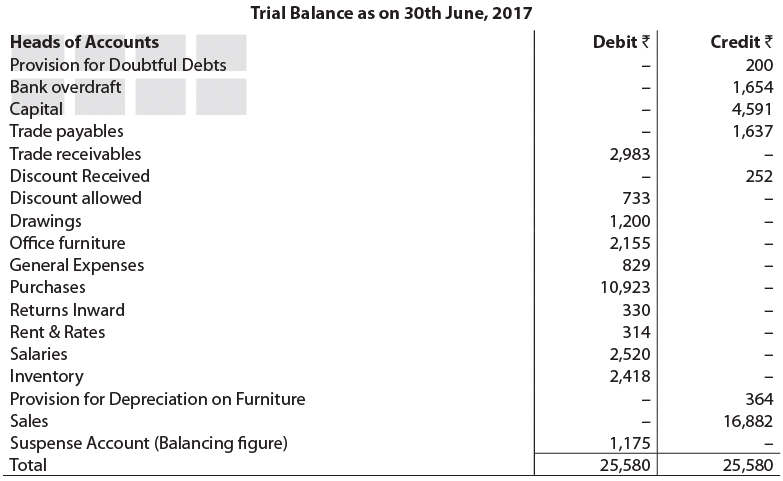Additional Information about Unit 3: Question & Answer - Trial Balance for CA Foundation Preparation
Unit 3: Question & Answer - Trial Balance Free PDF Download
The Unit 3: Question & Answer - Trial Balance is an invaluable resource that delves deep into the core of the CA Foundation exam.
These study notes are curated by experts and cover all the essential topics and concepts, making your preparation more efficient and effective.
With the help of these notes, you can grasp complex subjects quickly, revise important points easily,
and reinforce your understanding of key concepts. The study notes are presented in a concise and easy-to-understand manner,
allowing you to optimize your learning process. Whether you're looking for best-recommended books, sample papers, study material,
or toppers' notes, this PDF has got you covered. Download the Unit 3: Question & Answer - Trial Balance now and kickstart your journey towards success in the CA Foundation exam.
Importance of Unit 3: Question & Answer - Trial Balance
The importance of Unit 3: Question & Answer - Trial Balance cannot be overstated, especially for CA Foundation aspirants.
This document holds the key to success in the CA Foundation exam.
It offers a detailed understanding of the concept, providing invaluable insights into the topic.
By knowing the concepts well in advance, students can plan their preparation effectively.
Utilize this indispensable guide for a well-rounded preparation and achieve your desired results.
Unit 3: Question & Answer - Trial Balance Notes
Unit 3: Question & Answer - Trial Balance Notes offer in-depth insights into the specific topic to help you master it with ease.
This comprehensive document covers all aspects related to Unit 3: Question & Answer - Trial Balance.
It includes detailed information about the exam syllabus, recommended books, and study materials for a well-rounded preparation.
Practice papers and question papers enable you to assess your progress effectively.
Additionally, the paper analysis provides valuable tips for tackling the exam strategically.
Access to Toppers' notes gives you an edge in understanding complex concepts.
Whether you're a beginner or aiming for advanced proficiency, Unit 3: Question & Answer - Trial Balance Notes on EduRev are your ultimate resource for success.
Unit 3: Question & Answer - Trial Balance CA Foundation Questions
The "Unit 3: Question & Answer - Trial Balance CA Foundation Questions" guide is a valuable resource for all aspiring students preparing for the
CA Foundation exam. It focuses on providing a wide range of practice questions to help students gauge
their understanding of the exam topics. These questions cover the entire syllabus, ensuring comprehensive preparation.
The guide includes previous years' question papers for students to familiarize themselves with the exam's format and difficulty level.
Additionally, it offers subject-specific question banks, allowing students to focus on weak areas and improve their performance.
Study Unit 3: Question & Answer - Trial Balance on the App
Students of CA Foundation can study Unit 3: Question & Answer - Trial Balance alongwith tests & analysis from the EduRev app,
which will help them while preparing for their exam. Apart from the Unit 3: Question & Answer - Trial Balance,
students can also utilize the EduRev App for other study materials such as previous year question papers, syllabus, important questions, etc.
The EduRev App will make your learning easier as you can access it from anywhere you want.
The content of Unit 3: Question & Answer - Trial Balance is prepared as per the latest CA Foundation syllabus.
 The difference in trial balance is due to
The difference in trial balance is due to



























